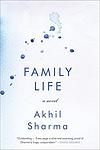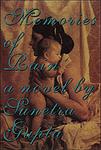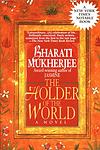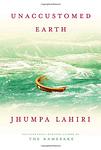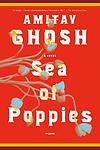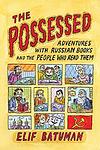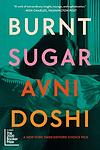The Greatest Turkish, Indian "Fiction" Books Since 1990
Click to learn how this list is calculated.
This list represents a comprehensive and trusted collection of the greatest books. Developed through a specialized algorithm, it brings together 300 'best of' book lists to form a definitive guide to the world's most acclaimed books. For those interested in how these books are chosen, additional details can be found on the rankings page.
Genres
Countries
Date Range
Reading Statistics
Click the button below to see how many of these books you've read!
Download
If you're interested in downloading this list as a CSV file for use in a spreadsheet application, you can easily do so by clicking the button below. Please note that to ensure a manageable file size and faster download, the CSV will include details for only the first 500 books.
Download-
1. The God of Small Things by Arundhati Roy
This novel is a poignant tale of fraternal twins, a boy and a girl, who navigate through their childhood in Kerala, India, amidst a backdrop of political unrest and societal norms. The story, set in 1969, explores the complexities of their family's history and the tragic events that shape their lives. Their mother's transgression of caste and societal norms by having an affair with an untouchable leads to disastrous consequences, revealing the oppressive nature of the caste system and the destructive power of forbidden love. The novel also delves into themes of postcolonial identity, gender roles, and the lingering effects of trauma.
-
2. A Suitable Boy by Vikram Seth
Set in 1950s India, this epic novel follows the story of four families over a period of 18 months, focusing primarily on the young woman Lata and her mother's quest to find her a suitable husband. The narrative explores the political, social, and personal upheavals in a newly independent India, struggling with its own identity amidst the backdrop of a society grappling with religious tensions, land reforms, and the shaping of a modern democratic state. Lata's journey is an exploration of love, ambition, and the weight of familial duty.
-
3. A Fine Balance by Rohinton Mistry
"A Fine Balance" is a poignant narrative set in India during the 1970s, a time of political turmoil and upheaval. The plot revolves around four diverse characters - a widow, a young student, and two tailors - who are brought together by fate. Through their interconnected lives, the book explores themes of caste, poverty, political corruption, and the human spirit's resilience. It offers a profound exploration of the delicate balance that sustains life amidst adversity.
-
4. My Name is Red by Orhan Pamuk
Set in the late 16th century Ottoman Empire, this novel explores the conflict between East and West, tradition and innovation, through the lens of miniaturist painters. When a renowned artist is murdered, his colleagues must solve the mystery while grappling with the changes in their art brought about by the western Renaissance. This complex narrative intertwines love, art, religion, and power, offering a deep exploration of the struggles between old and new.
-
5. Snow by Orhan Pamuk
Set in the small city of Kars in northeastern Turkey, the novel follows a Turkish poet who has spent several years in political exile in Germany. He returns to Turkey during a time of political unrest, with tensions high between religious and secular factions. As he becomes embroiled in the turmoil, he also becomes involved in a romantic relationship with a beautiful woman. The city is cut off from the rest of the world by a relentless snowstorm, leading to a series of tragic events. The novel is a contemplation on love, faith, and the tensions between tradition and modernity.
-
6. The White Tiger by Aravind Adiga
"The White Tiger" is a darkly humorous novel set in modern-day India that explores the country's class struggle through the eyes of an ambitious and cunning protagonist. Born in a poor village, he moves to Delhi to work as a chauffeur for a rich family. He eventually breaks free from his life of servitude by committing an act of shocking violence, and uses his newfound freedom to become a successful entrepreneur in Bangalore. The story, told through a series of letters written to the Chinese Premier, is a scathing critique of India's social and economic disparities, and the corruption that permeates all levels of society.
-
7. The River Sutra by Gita Mehta
"The River Sutra" by Gita Mehta is a captivating novel that explores the intertwining lives of various characters along the sacred river Narmada in India. Through vivid storytelling and rich descriptions, the book delves into themes of spirituality, love, and the search for meaning in life. As the characters embark on journeys of self-discovery, the river serves as a powerful metaphor for the flow of life and the interconnectedness of all beings. With its lyrical prose and thought-provoking narrative, "The River Sutra" offers a profound exploration of the human experience and the timeless wisdom of ancient traditions.
-
8. The Inheritance of Loss by Kiran Desai
This novel explores themes of love, loss, and the human struggle for identity amidst political unrest. Set in India during the Nepalese movement for an independent state, the narrative follows the lives of a retired judge living in the Himalayas, his granddaughter, and his cook. As the political situation worsens, each character must grapple with their own personal issues, including the judge's regret over his failed marriage and his granddaughter's struggle to find her place in the world. The cook, meanwhile, dreams of a better life for his son in the United States. The narrative weaves together these individual stories to create a poignant tapestry of human resilience in the face of adversity.
-
9. Family Life by Akhil Sharma
Family Life is a poignant, semi-autobiographical novel that follows the experiences of an Indian family that immigrates to America in the late 1970s. Their dream of a better life is shattered when the older son suffers a terrible accident that leaves him brain-damaged. The story is narrated by the younger son, who struggles with the pressures of his parents' expectations, the trauma of his brother's condition, and the cultural dislocation of being an immigrant in America. The novel explores themes of family, love, loss, and the immigrant experience.
-
10. Life is a Carawanserai Has Two Doors I Went in One I Came out the Other by Emine Sevgi Özdamar
This novel follows the life of a young Turkish girl growing up in the 1950s and 60s, exploring her experiences in a rapidly changing society. The protagonist navigates the complexities of her family life, her struggle with her identity and her eventual emigration to Germany. The book explores themes of female empowerment, cultural clashes, and the immigrant experience, all told through a unique narrative style that blends reality with dreams and folktales.
-
11. Memories of Rain by Sunetra Gupta
The novel explores the crumbling marriage of a Bengali woman and her Greek husband. The narrative alternates between Kolkata, India, and London, England, and spans over a decade, capturing the protagonist's emotional turmoil, her struggle to reconcile her Indian heritage with her Western lifestyle, and her eventual decision to leave her unfaithful husband. The novel is rich in poetic language and imagery, and it delves deep into themes of identity, cultural displacement, and the complexities of love and betrayal.
-
12. Holder of the World: A Novel by Bharati Mukherjee
The novel explores the life of Hannah Easton, a woman born in 17th century Salem, who gets married to a British adventurer and travels to India. In India, she becomes the concubine of a local ruler and takes on the name "The Holder of the World". The story is narrated by a 20th-century woman who discovers Hannah's story through a virtual reality device. The narrative weaves together the historical and the contemporary, the East and the West, and the real and the virtual, to create a rich tapestry of a woman's life and the cultural clashes she experiences.
-
13. Nampally Road by Meena Alexander
"Nampally Road" is a poignant narrative set against the backdrop of political turbulence in India. The story follows Mira Kannadical, a young woman who returns to Hyderabad after studying in England, only to find herself amidst a society rife with corruption, poverty, and political unrest. As she takes up a teaching position and begins to build a life, Mira's journey is interwoven with her personal quest for identity and her engagement with the struggles of the people around her. The novel explores themes of self-discovery, social injustice, and the complexities of postcolonial India, all while painting a vivid portrait of the city of Hyderabad and the titular Nampally Road, which becomes a symbol of the country's chaotic and vibrant life.
-
14. Incantations And Other Stories by Anjana Appachana
"Incantations And Other Stories" is a collection of short stories that delve into the lives of Indian women, exploring themes of tradition, modernity, and identity. The narratives often focus on the personal struggles and inner lives of these women as they navigate societal expectations and their own desires. Set against the backdrop of Indian culture, the stories blend the real with the surreal, weaving together the everyday with the magical through the use of incantations and folklore. The book offers a poignant look at the complexities of life and the power of storytelling in shaping one's reality and sense of self.
-
15. The Black Book by Orhan Pamuk
The novel focuses on a man searching for his wife in Istanbul, who disappeared without a trace. In his search, he discovers a secret, surreal world in the city and starts to understand his wife's involvement in political activism. The narrative is interwoven with stories from a column written by his wife's half-brother, which the protagonist believes may hold clues to her disappearance. The book is a complex exploration of identity, storytelling, and the role of literature in society.
-
16. The Forty Rules of Love by Elif Shafak
This novel intertwines two parallel narratives, one set in the 13th century and one in the modern day. The contemporary story follows a discontented American housewife who, while working as a reader for a literary agency, comes across a novel about the 13th-century poet Rumi and his spiritual mentor, Shams of Tabriz. As she delves into their story, she uncovers Shams' forty rules of love and begins to question her own life and relationships. The historical narrative, on the other hand, explores the transformative friendship between Rumi and Shams, and how their bond revolutionized Rumi's poetry and outlook on life.
-
17. The Museum Of Innocence by Orhan Pamuk
This novel delves into the obsessive love of Kemal, a wealthy Istanbulite, for Füsun, a distant relative and a shopgirl, which begins in 1975 and spans over 30 years. After a brief affair, Füsun marries another man, but Kemal's love remains unyielding. He starts collecting objects that remind him of his love for her, eventually creating a museum dedicated to their relationship. Set against the backdrop of Istanbul's changing society, the story explores themes of love, longing, class, and the power of memory, as Kemal's life becomes a testament to his unattainable desire, encapsulated within the walls of his museum.
-
18. A Strange And Sublime Address by Amit Chaudhuri
The book is a lyrical exploration of the nuances of everyday life, as seen through the eyes of a young boy during his summer visits to his extended family in Calcutta. The narrative delves into the boy's experiences and observations, capturing the essence of the city's vibrant culture, the idiosyncrasies of his relatives, and the slow rhythms of daily existence. Through a series of vignettes, the story paints a portrait of family life, the passage of time, and the subtle interplay between tradition and modernity in urban India.
-
19. Unaccustomed Earth by Jhumpa Lahiri
"Unaccustomed Earth" is a collection of short stories by Jhumpa Lahiri that explores the lives of Bengali immigrants and their children in the United States. The stories focus on themes of family, love, loss, and cultural identity as characters navigate the challenges of assimilation and the tensions between their American and Bengali identities. The collection is divided into two parts, with the first featuring interconnected stories about the experiences of two generations of a Bengali family, and the second featuring standalone stories that explore similar themes. Overall, the book offers a nuanced and poignant portrayal of the immigrant experience and the complexities of cultural identity.
-
20. Sea of Poppies by Amitav Ghosh
"Sea of Poppies" is a historical novel set in the 1830s, just before the Opium Wars. It traces the intertwined lives of a diverse group of characters, from a raja turned convict, a widowed poppy grower, a French orphan, to a mulatto American freedman, all of whom are brought together on the Ibis, a former slave ship now used for transporting opium. The story explores the social and economic impact of the opium trade, colonialism, and the caste system, while also delving into the personal histories, relationships, and struggles of the characters.
-
21. Q & A by Vikas Swarup
The book is a gripping tale of a young Indian waiter who becomes the biggest quiz show winner in history, only to be arrested for cheating. Through a series of flashbacks and heart-wrenching stories, we learn how his life experiences provided him with the answers to the show's questions. Each chapter reveals a different episode of his past, from his childhood in the slums to various encounters that taught him lessons about love, betrayal, and survival, painting a vivid portrait of the struggle and resilience of life in contemporary India.
-
22. The Possessed by Elif Batuman
"The Possessed" is a compelling narrative that combines memoir, criticism, and travel writing to explore the author's deep fascination with Russian literature. Through her experiences as a graduate student at Stanford, her travels to Turkey, Russia, and Uzbekistan, and her encounters with other scholars, the author delves into the works of great Russian authors such as Tolstoy, Dostoevsky, and Chekhov, while also reflecting on the nature of literature, identity, and the human condition.
-
23. Out Of India by Ruth Prawer Jhabvala
"Out of India" is a collection of stories and essays that provide a rich and evocative portrayal of Indian society and the complexities of its cultural and social tapestry. The author, born in Germany and having spent a significant part of her life in India, uses her unique perspective to explore themes of identity, displacement, and the nuances of East-West encounters. Through vivid characterizations and keen observations, the book captures the essence of India, from its bustling cities to its rural landscapes, offering insights into both the beauty and the contradictions of the country. The work is a reflection on the author's experiences and observations during her time in India, making it both a personal and deeply insightful read.
-
24. The Bastard of Istanbul by Elif Shafak
"The Bastard of Istanbul" is a novel that tells the story of two families, one Turkish and one Armenian American. It explores the deep, intricate history between the two nations through the eyes of the characters, while also tackling themes of identity, memory, and the past. The narrative unfolds through the perspectives of the women in both families, who carry the burden of their ancestors' secrets, and a young man haunted by the ghost of a long-dead Armenian. The novel delves into the complexities of love, family, and the lasting effects of the Armenian genocide on its descendants.
-
25. Burnt Sugar by Avni Doshi
This novel delves into the complex and fraught relationship between a mother and daughter against the backdrop of contemporary India. The daughter, now an adult, grapples with her mother's advancing dementia and the bitter memories of a childhood marked by neglect and unconventional parenting. As the mother's memory deteriorates, the daughter is forced to confront the painful legacy of their past and the ambiguity of her filial obligations. The narrative weaves through themes of memory, betrayal, and the inextricable bond of family, painting a portrait of two women bound by love and resentment in equal measure.
Reading Statistics
Click the button below to see how many of these books you've read!
Download
If you're interested in downloading this list as a CSV file for use in a spreadsheet application, you can easily do so by clicking the button below. Please note that to ensure a manageable file size and faster download, the CSV will include details for only the first 500 books.
Download







